AI and Public Policy International Conference 2024
Artificial Intelligence (AI) has become an important driving force in leading a new round of scientific and industrial revolution, opening a new era of intelligence in human society.
To bring together researchers and practitioners to share their innovative research, best insights and practices regarding the opportunities and challenges brought by AI in public policy and governance, the Nanyang Centre for Public Administration (NCPA) at NTU, Singapore and Tan Chin Tuan Foundation (TCTF) organised the AI and Public Policy International Conference in Singapore on 15 – 16 Nov 2024. A total of around 150 academics, policymakers, and practitioners from 10 countries participated in the two-day conference, held at JEN Singapore Tanglin by Shangri-La.
On the morning of 15 November 2024, Associate Professor Wang Jue, Director of NCPA, NTU Singapore, and Professor Luke Ong, Vice President, NTU Singapore, gave their welcome and opening addresses respectively.
In her welcome address, Prof Wang Jue thanked TCTF for its strong support and commented that AI has rapidly shifted from a speculative future to a transformative present, touching every aspect of our lives in recent years. As researchers, policymakers, and innovators, we are tasked with understanding AI’s impact in a way that is inclusive and forward-thinking.
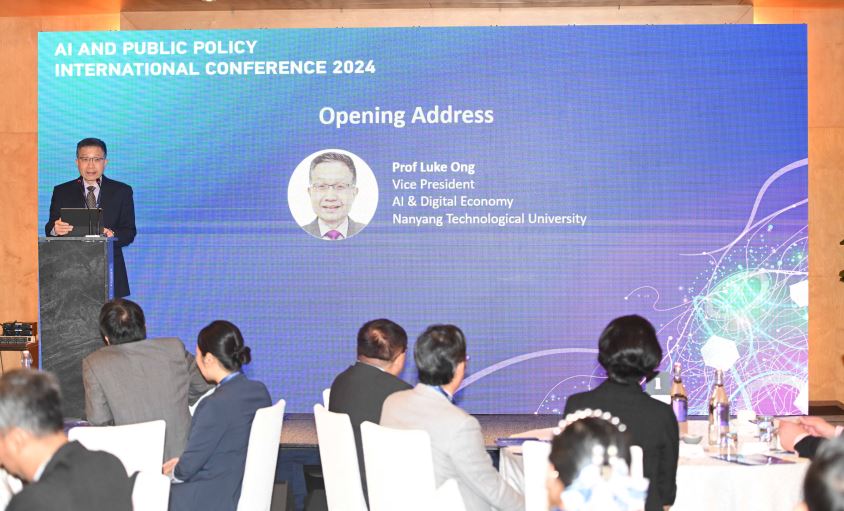
Prof Luke Ong shared that the conference’s timely theme addresses the transformative impact of AI on our lives, providing a platform for meaningful discussions that will lead to actionable recommendations for public officials. He outlined NTU's strategic efforts to address the opportunities and challenges presented by AI through a comprehensive focus on education, research, and innovation. Key initiatives included the launch of a new College of Computer and Data Science, new academic offerings such as the Bachelor of Science in AI and Society degree programme, the Turing AI Scholars Programme, and an AI minor for all undergraduates. These programmes will equip students with expertise in AI, computing, and data science, combining technical knowledge with interdisciplinary learning to prepare graduates for applying AI across diverse fields. Additionally, NTU has also launched AI@NIE to integrate AI into pedagogy and established the Alibaba-Nanyang Technological University, Singapore Joint Research Institute (JRI) to advance AI research.
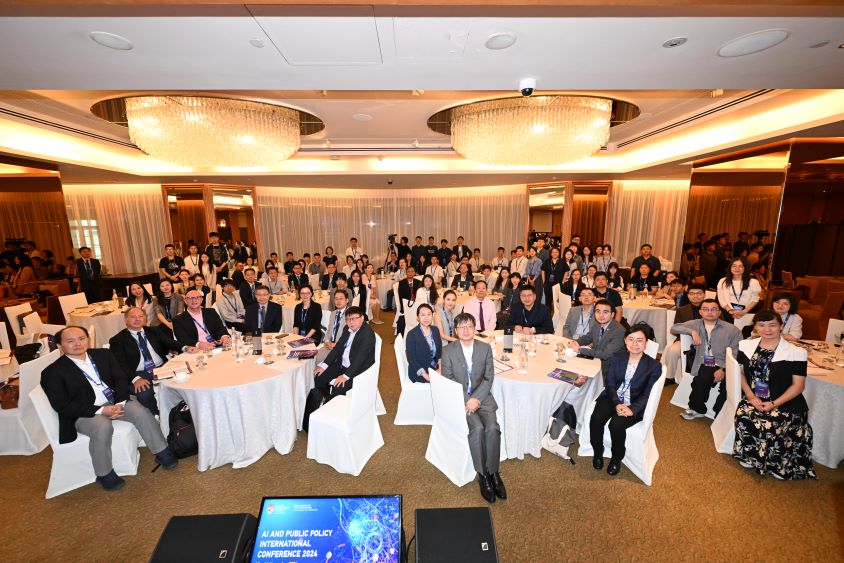
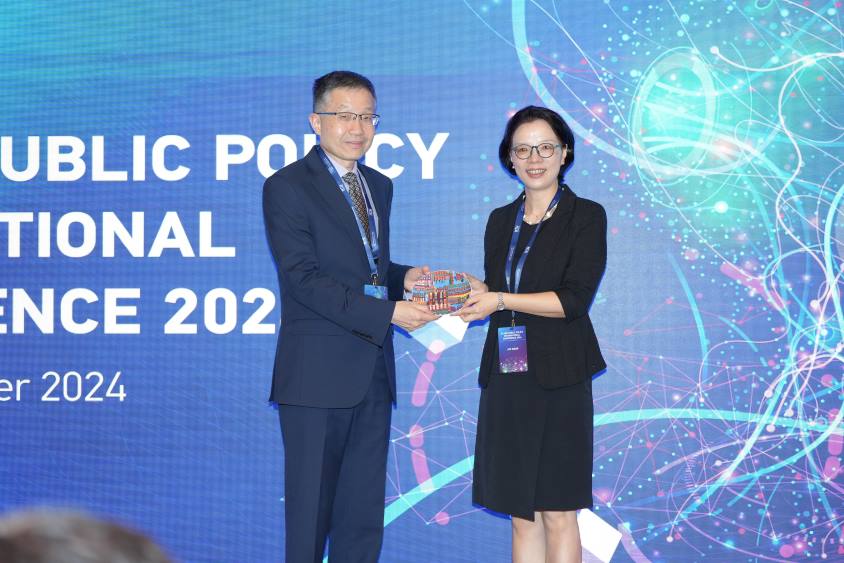
Other keynote speakers at the conference included Mr Gianluca Misuraca, First Executive Director, Master on Artificial Intelligence in public services (AI4GOV), Universidad Politécnica de Madrid and the Politecnico di Milano, Italy; Prof Wu Xun, Professor of Hong Kong University of Science and Technology (Guangzhou), China; Prof Kazuyuki Motohashi, Professor, Graduate School of Engineering and Research, Center of Advanced, Science and Technology, The University of Tokyo, Japan; Dr Rainer Frietsch, Head of Competence Center Innovation and Knowledge Economy, Fraunhofer Institute for Systems and Innovation Research ISI, Germany.
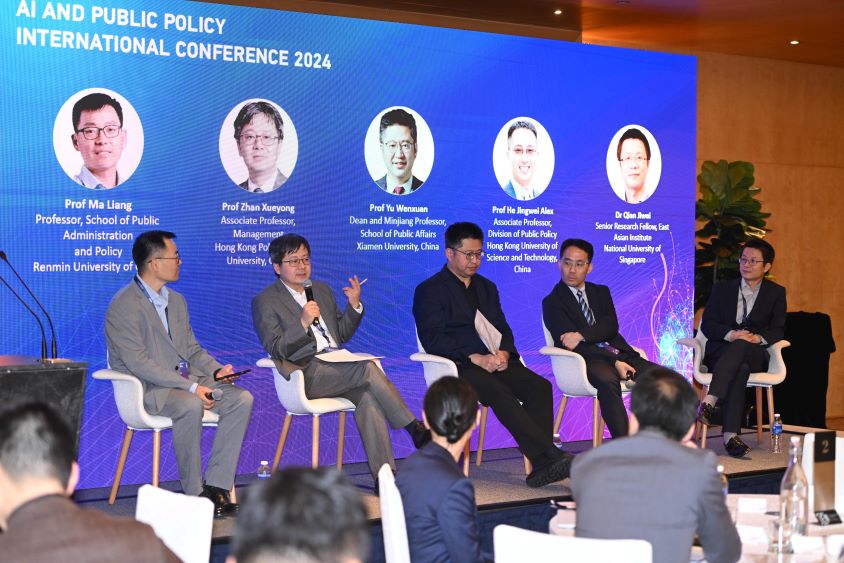
On the afternoon of 15 November 2024, plenary speakers gave their speech around three topics, including AI Policy, Research and Global Governance; Reshaping Higher Education through AI; and Augmenting Public Administration with AI, with participants from diverse disciplines on discussions to leverage AI for the betterment of government, higher education, and community development. Professor Liu Hong, Associate Vice President, International and Director (Research & Executive Education), NCPA and Dr Wang Hang, Deputy Director, NCPA also attended the conference.
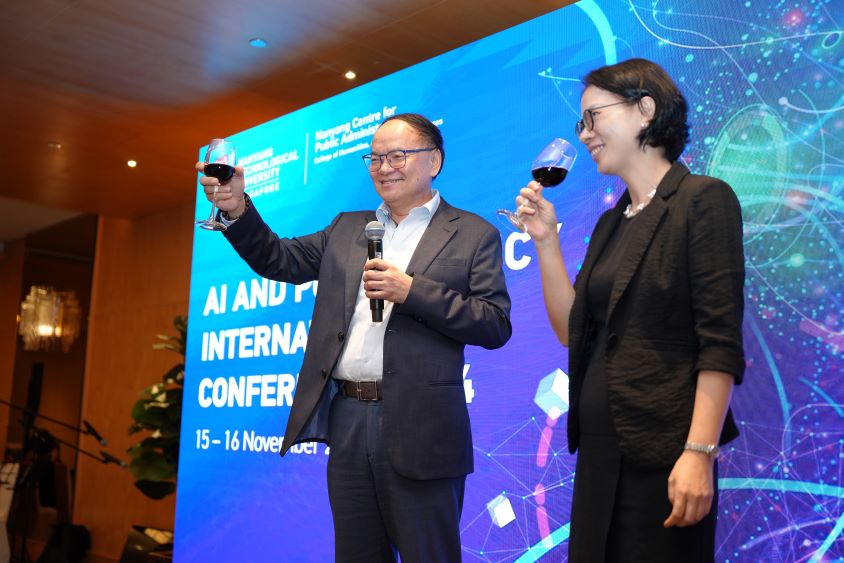
The conference continued on 16 November 2024 and featured compelling discussions with over 20 breakout sessions around four themes, covering topics including AI Governance, Policy and Trust; AI Applications in Public Services; to AI Education, Research and Society; and AI Contexts, Challenges and Complexities. By engaging in presentation and discussion on relevant theoretical and practical issues, the conference enabled the establishment of innovative theoretical implications for academia and practical recommendations for public officials.














/enri-thumbnails/careeropportunities1f0caf1c-a12d-479c-be7c-3c04e085c617.tmb-mega-menu.jpg?Culture=en&sfvrsn=d7261e3b_1)

/cradle-thumbnails/research-capabilities1516d0ba63aa44f0b4ee77a8c05263b2.tmb-mega-menu.jpg?Culture=en&sfvrsn=1bc94f8_1)






